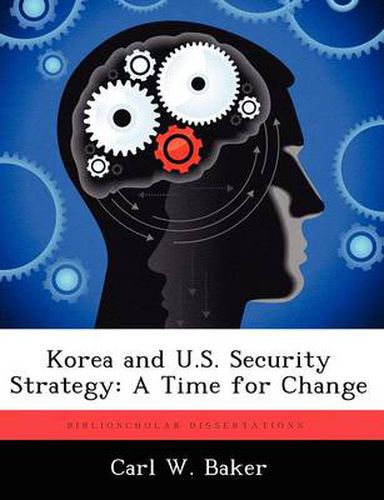Readings Newsletter
Become a Readings Member to make your shopping experience even easier.
Sign in or sign up for free!
You’re not far away from qualifying for FREE standard shipping within Australia
You’ve qualified for FREE standard shipping within Australia
The cart is loading…






This title is printed to order. This book may have been self-published. If so, we cannot guarantee the quality of the content. In the main most books will have gone through the editing process however some may not. We therefore suggest that you be aware of this before ordering this book. If in doubt check either the author or publisher’s details as we are unable to accept any returns unless they are faulty. Please contact us if you have any questions.
The purpose of this paper is to examine the US security strategy in Northeast Asia in the post-Korean Armistice period. Although the United States has maintained a steadfast alliance with the Republic of Korea since the signing of the Korean Armistice Agreement in 1953, the decision by the United States to actively engage North Korea in direct dialogue has created the potential for increasing divergence of interest within the alliance. The United States is concerned with the nuclear proliferation issue while the Republic of Korea is concerned with being recognized as a principal party to any peace settlement.
$9.00 standard shipping within Australia
FREE standard shipping within Australia for orders over $100.00
Express & International shipping calculated at checkout
This title is printed to order. This book may have been self-published. If so, we cannot guarantee the quality of the content. In the main most books will have gone through the editing process however some may not. We therefore suggest that you be aware of this before ordering this book. If in doubt check either the author or publisher’s details as we are unable to accept any returns unless they are faulty. Please contact us if you have any questions.
The purpose of this paper is to examine the US security strategy in Northeast Asia in the post-Korean Armistice period. Although the United States has maintained a steadfast alliance with the Republic of Korea since the signing of the Korean Armistice Agreement in 1953, the decision by the United States to actively engage North Korea in direct dialogue has created the potential for increasing divergence of interest within the alliance. The United States is concerned with the nuclear proliferation issue while the Republic of Korea is concerned with being recognized as a principal party to any peace settlement.